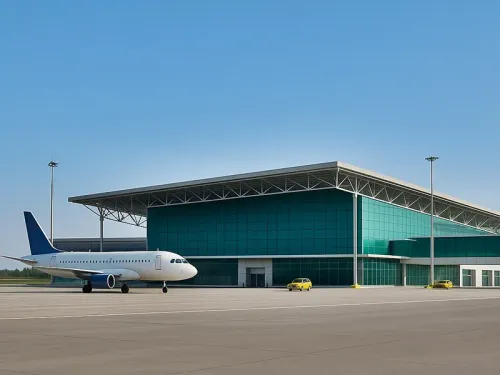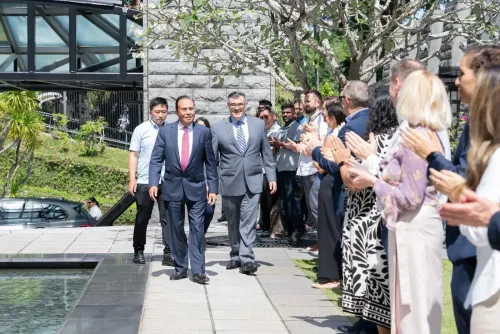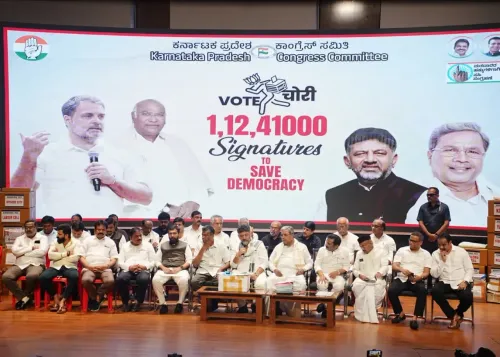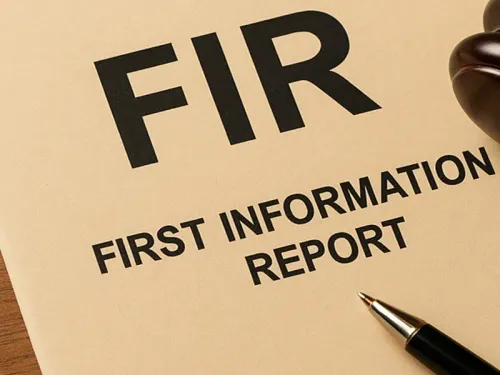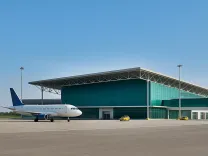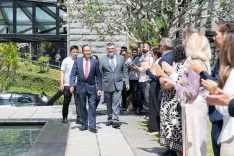Is the 'End of Terrorism' Inevitable under PM Modi's Leadership?
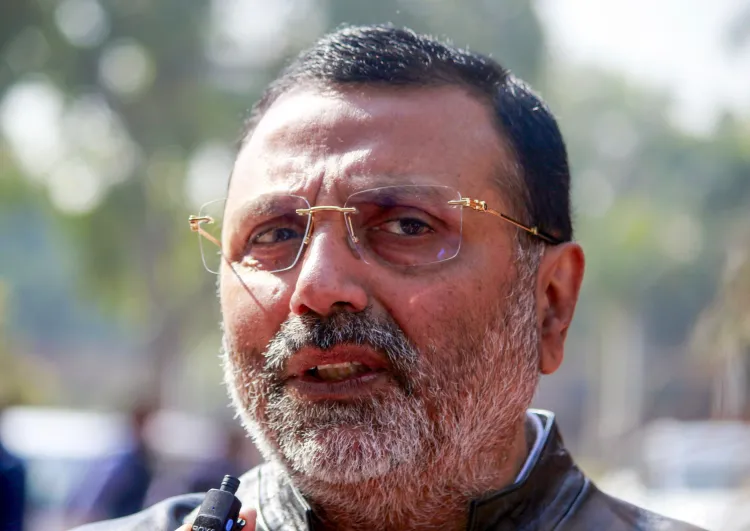
Synopsis
Key Takeaways
- Nishikant Dubey's statement highlights India's commitment to combating terrorism.
- Operation Sindoor targets terror infrastructure in Pakistan-occupied regions.
- The all-party delegations represent a unified political front against Pakistan's terrorism.
- India seeks international support to address terrorism and promote peace.
- Diplomatic efforts aim to clarify India's stance on Kashmir.
New Delhi, May 18 (NationPress) Bharatiya Janata Party (BJP) MP Nishikant Dubey asserted on Sunday that the termination of terrorism is unavoidable under the robust and decisive leadership of Prime Minister Narendra Modi. He emphasized that the Union government will triumph in its endeavor to unveil Pakistan on the global platform, particularly concerning the proxy terrorist organization behind the recent Pahalgam terror attack.
The BJP representative noted that after Indonesia and Pakistan, India ranks as the third largest nation globally with a significant Muslim population.
In a post on the social media platform X, he stated: "Following Indonesia and Pakistan, we are the third Muslim-majority nation worldwide. Muslims, like Hindus, are severely affected by terrorism in Jammu and Kashmir. The OIC or Organization of Islamic Cooperation has its headquarters in Saudi Arabia. Our mission will succeed, and the brutal reality of Pakistan will be revealed to the world. The end of terrorism is unavoidable as long as Modi leads... Jai Hind Jai Bharat."
He further illustrated that both Muslims and Hindus suffer similarly due to terrorism in Jammu and Kashmir.
The Indian government has revealed a complete lineup of seven all-party delegations aimed at exposing Pakistan's ties to terrorism and Operation Sindoor to essential partner nations.
As per a statement from the External Affairs Ministry, "In relation to 'Operation Sindoor' and India's ongoing battle against cross-border terrorism, seven All-Party Delegations are scheduled to visit key partner countries, including members of the UN Security Council, later this month."
According to the listing provided by Union Parliamentary Affairs Minister Kiren Rijiju, Congress leader Shashi Tharoor will spearhead the delegation to the United States, Guyana, Panama, Brazil, and Colombia.
He will be joined by LJP's Shambhavi Chaudhry, JMM's Dr. Sarfraz Ahmed, TDP's GM Harish Balayagi, BJP's Shashank Mani Tripathi, Tejasvi Surya, Bhubaneshwar Kalita, Shiv Sena's Milind Deora, and ambassador Taranjit Singh Sandhu.
Meanwhile, a delegation led by NCP (SCP) leader Supriya Sule will visit Egypt, Qatar, Ethiopia, and South Africa. Accompanying her will be BJP's Rajiv Pratap Rudy and Anurag Thakur, along with representatives from TDP, Congress, and a former MEA spokesperson as the diplomatic voice.
AIMIM chief Asaduddin Owaisi will join the delegation headed by BJP's Baijayant Panda traveling to Saudi Arabia, Kuwait, Bahrain, and Algeria. This team includes Nishikant Dubey, Phangnon Konyak, and Rekha Sharma, along with others.
The group led by former union minister Ravi Shankar Prasad will oversee India's stance in the UK, France, Germany, the EU, Italy, and Denmark. Notable members of this delegation include Shiv Sena's Priyanka Chaturvedi, Congress's Amar Singh, and prominent journalist MJ Akbar.
JD(U)'s Sanjay Jha will lead a delegation to Indonesia, Malaysia, South Korea, Japan, and Singapore. Another delegation from Shiv Sena, led by Shrikant Eknath Shinde, will travel to the UAE, DR Congo, Liberia, and Sierra Leone.
DMK's Kanimozhi is also leading a delegation scheduled to visit Spain, Greece, Slovenia, Latvia, and Russia.
The purpose of these delegations is to communicate India's consolidated political position against terrorism and to garner international support for holding Pakistan accountable.
New Delhi continues to assert that Kashmir remains a bilateral issue.
This marks a significant first for the Modi government, as it mobilizes elected officials from various political parties as diplomatic representatives to counter Pakistan's narrative on the international stage.
The delegations aim to achieve two primary objectives: to inform foreign governments about the Pahalgam terror attack and to clarify that Operation Sindoor specifically targeted terrorist infrastructure in territories occupied by Pakistan, ensuring civilian safety.

